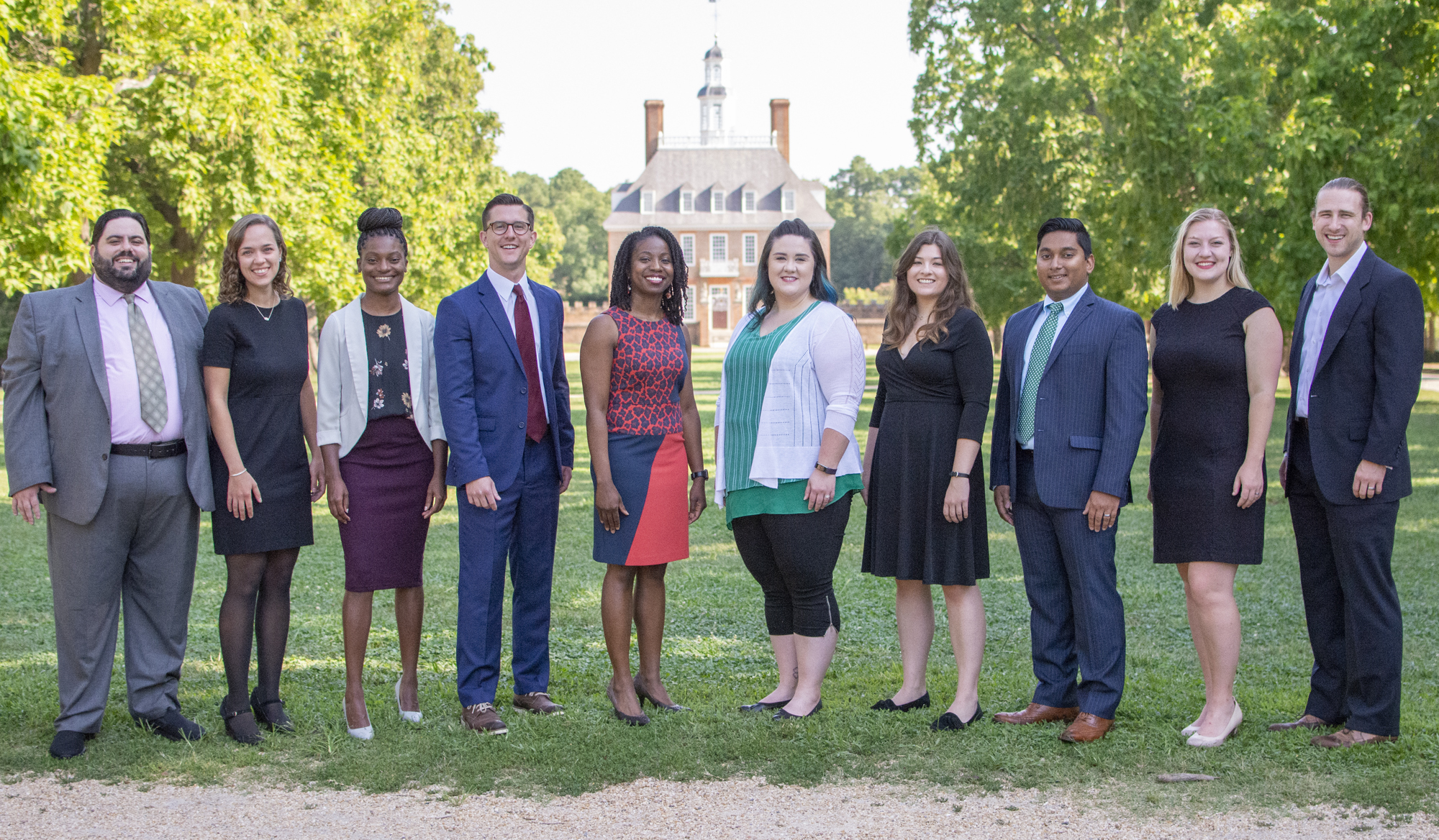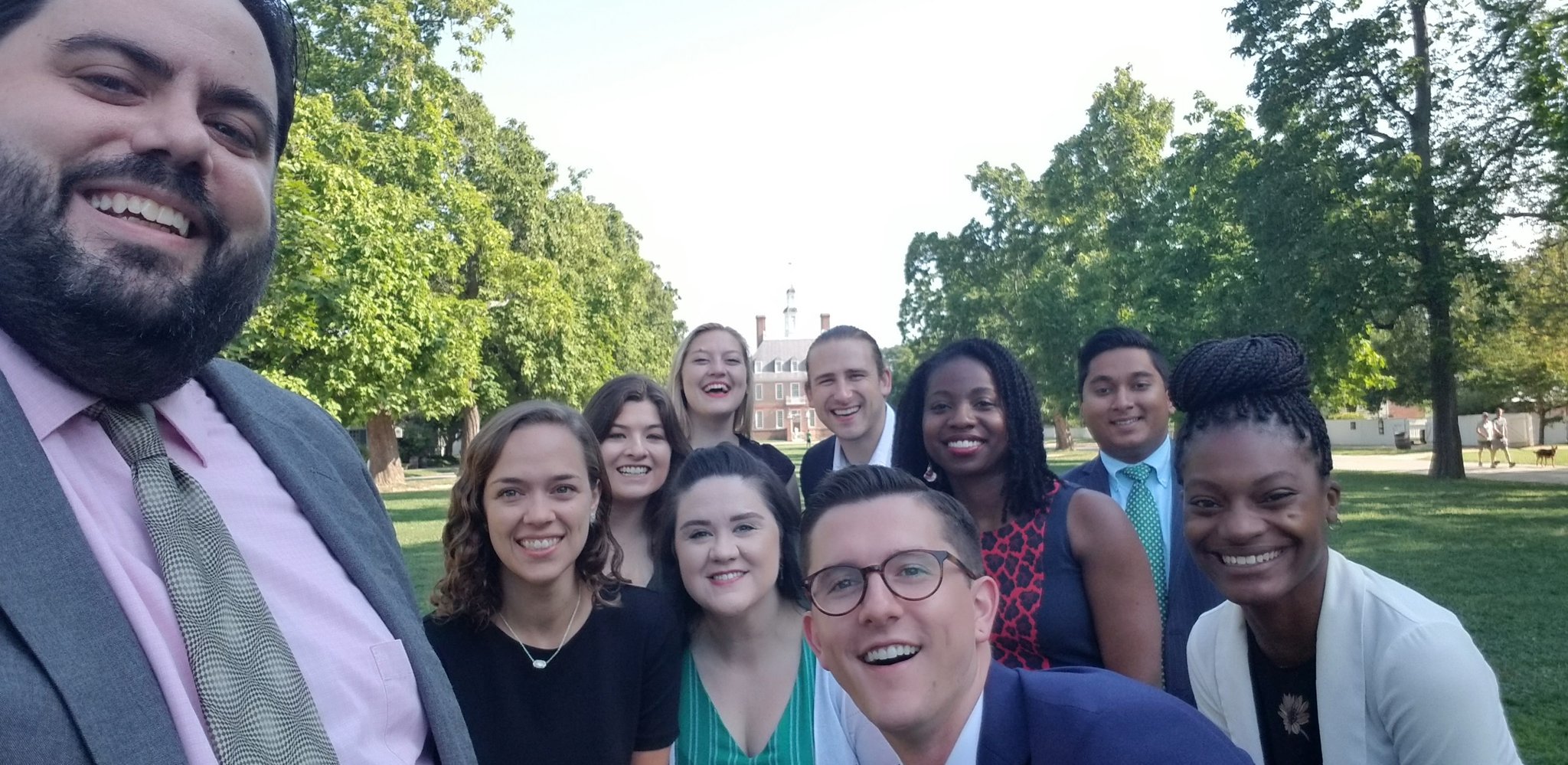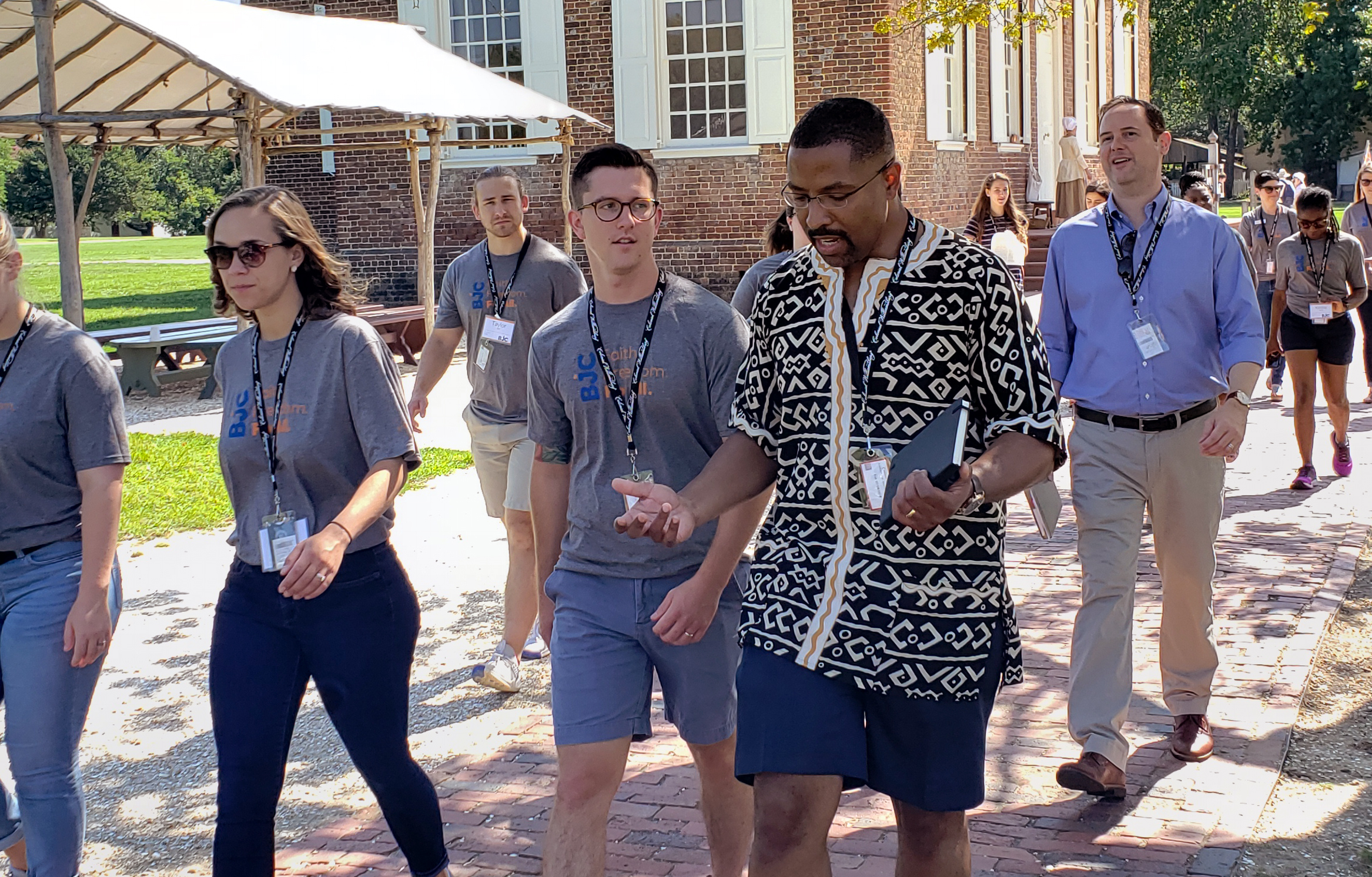THE BJC FELLOWS
2019 BJC Fellows
The BJC Fellows Program equips young leaders for a lifetime of religious liberty advocacy. Hear more about it from the 2019 participants below, and see photos on Facebook or by searching “#BJCFellows” on various social media platforms. For more, visit BJConline.org/Fellows.
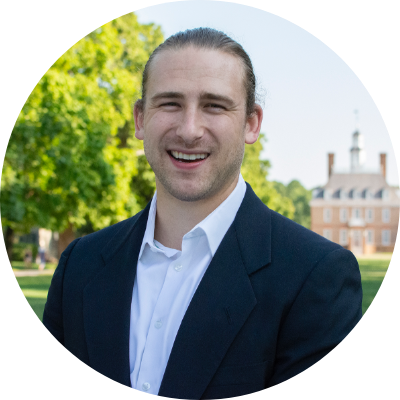
We were not a homogeneous group; we were not an echo chamber.
Taylor Bell / Birmingham, Alabama
We were not all white, were not all Christian, and we didn’t vote the same way. We were a diverse group of individuals who came together to engage, support and challenge each other in a deeper engagement of religious liberty.
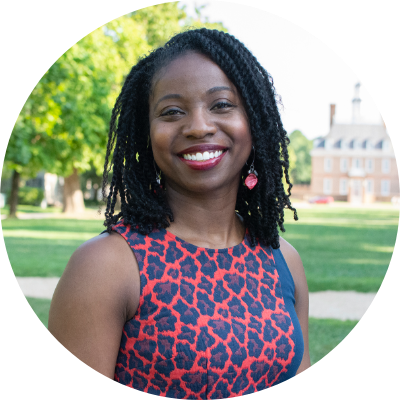
I was reminded that religious life in America began with the “othering” of people who didn’t adopt their Colony’s established religion.
Keisha Patrick / Washington, D.C.
In Colonial Virginia, Baptists were the others. Baptists preachers faced beatings and imprisonment for exercising their faith instead of the Christian denomination that Virginia’s Colonial government had chosen.
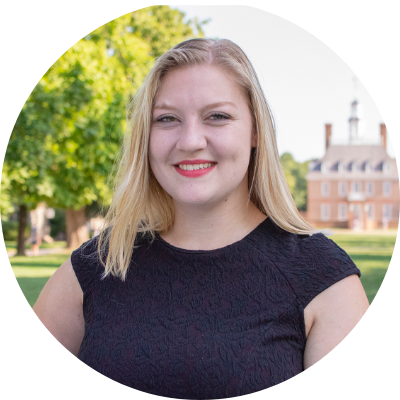
Sarah Henry / Arlington, Virginia
I cannot imagine the confidence it would have given me (and the greater impact it would have had) to have a Christian ally stand next to me, asking for faith freedom for all.
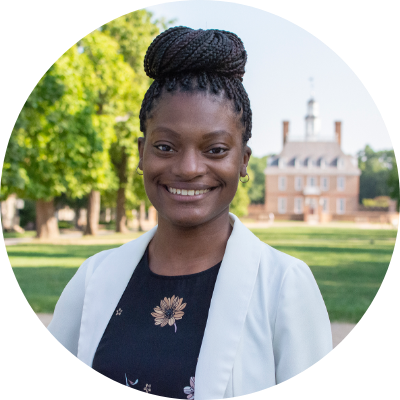
Not only were we Baptist, we were Episcopal, Church of God in Christ (COGIC), Muslim and nonreligious. I am glad that we were a diverse crowd.
Brittany Graves / Cedar Park, Texas
There’s nothing worse than having conversations with people that are the same kind of different as you. We each brought varying perspectives that carried our dialogues and gave each of us new insights.
How can we fight for progress and change, if we aren’t also knowledgeable and making strides with the courts and Congress? BJC is doing the hands-on work to effectively support religious liberty. It is inspirational to see and encourages me to make moves in my hometown, especially among people and groups that remain voiceless and marginalized.
As I learn to advocate for religious liberty in new ways, the BJC Fellows Program gave me language to equip me for years to come. Not to mention, now I have a number of resources that will help on my journey.
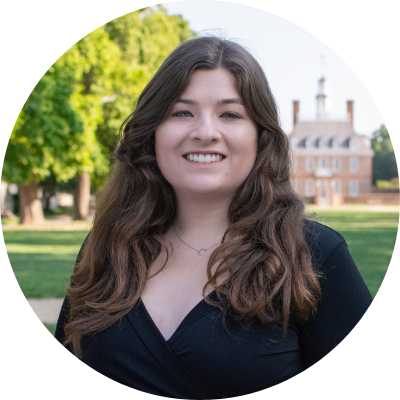
Sarah Dannemiller / Abilene, Texas
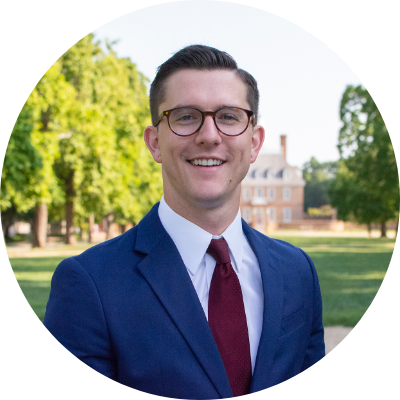
Kyle Nicholas / Charlottesville, Virginia
Not being a Baptist myself, it was an excellent opportunity to live into others’ narratives and explore pathways for ecumenical conversations around a shared value (religious liberty) that several of us held for different reasons. What stuck out to me was the revolutionary nature of the early Baptist commitment to religious liberty. For them, religious liberty was not merely a compromise between a homogeneous Christianity on the one hand, and a secular or deist population on the other. Rather, they held this value against other Christians from the belief that no creed, backed up by government force, should be forced upon an unwilling conscience. So the sheer radicality of their contribution to religious liberty impressed me, and it is a strikingly relevant and contemporary formulation in many ways. I was also impressed by the history and legal advocacy of BJC, and I’m glad the seminars went into depth on these points.
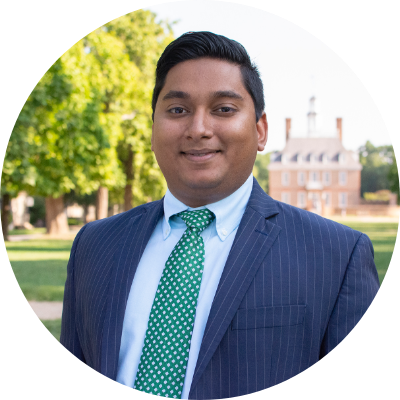
Eftakhar Alam / Alexandria, Virginia
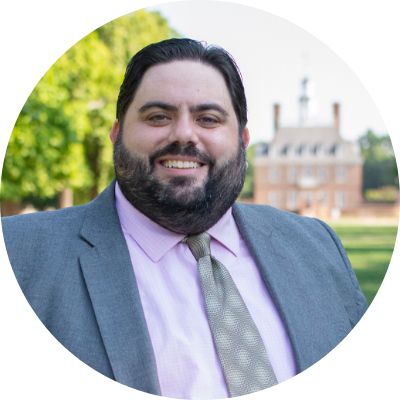
Chris Crowley / Richmond, Virginia
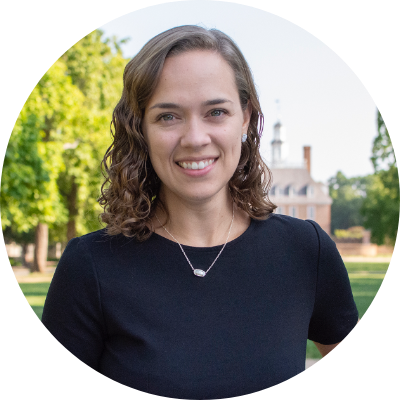
Molly Shepard / Dallas, Texas
At the very beginning of our nation, as our Founders argued over the meaning and practice of religious liberty for themselves, they simultaneously denied any freedom or dignity to the African slaves they were importing.
By tying the concept of racial justice to the idea of religious liberty, I now feel like I have the power and the obligation to pick up this torch. I cannot stand by and watch my religion be twisted into a weapon to alienate anyone who doesn’t look or believe like me.
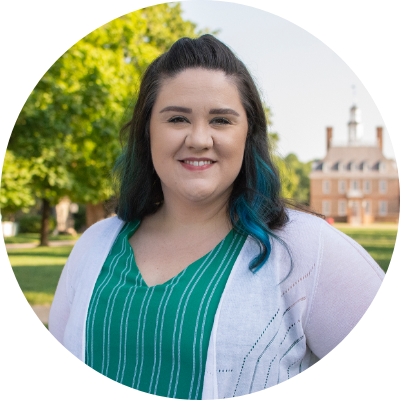
Jillian Hankamer / Lewisburg, Pennsylvania
As Associate General Counsel Jennifer Hawks said, to be a Fellow is to be part of a family who supports each other long after the “program” is over. But perhaps my biggest takeaway from Williamsburg is the necessity of BJC’s work. BJC exists and works every day on that thin line between what it means to be faithful followers of Christ and ensuring that all Americans are free to worship or not worship as they choose. BJC invests in their Fellows by making us advocates, and I am incredibly grateful to be part of this family.
Apply to be a BJC Fellow!
There is no religious requirement for the program; those with six years or less experience in their profession are eligible.

